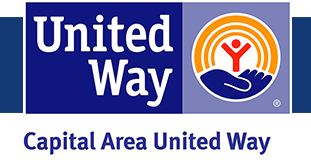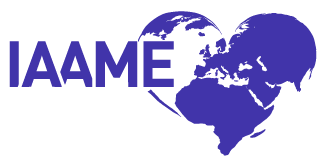FAQ
Do you have to be Catholic to adopt through Catholic Charities?
At Catholic Charities, we serve families from a variety of faiths and backgrounds.
What is a home study?
A home study is a report that is required to adopt, and it is written by a social worker. The home study process is both educational and evaluative, and is an important step in preparing families for the lifelong journey of adoption. The process involves home visits, individual interviews, couple interviews, and family interviews with a CCDBR social worker. The report is also made up of supporting documents such as background checks, medical reports, financial information, and reference letters. The report must meet the guidelines of the state of Louisiana, various agencies, and foreign governments (in international adoption).
What are Post-Placement Services?
Post-Placement Services are services provided after a child is placed in your home through adoption, typically in the form of home visits by your CCDBR social worker. The number and frequency of visits required depends on the type of adoption (domestic vs. international). The goal of these visits is to ensure the child and family are adjusting and bonding. Our social workers provide education, support and make referrals to community resources to assist in this adjustment when needed.
Am I required to attend any training sessions?
Families adopting through Catholic Charities are required to attend a 10-hour training course held at our agency. This Hague-compliant course is offered once a quarter or on an as-needed basis. It is typically held on a Friday and Saturday.
Are there healthy infants available for adoption in the US?
Thousands of families each year adopt healthy, newborn babies. We also work with families who adopt children of all ages born in the United States and abroad.
Do I have to work with another agency or can CCDBR handle everything for me?
If you choose domestic adoption, Catholic Charities is the only agency you will be working with. We provide training, home study services, the required post-placement supervision, as well as an attorney for the legal finalization of the adoption.
I’m single. Can I still adopt a child?
Many single adults are building their families through adoption and our domestic program does currently accept single applicants.
Who are the birthmothers?
The birthmothers we work with are typically in their twenties, single, and already parenting other children. They are often facing multiple challenges, and they bravely and lovingly consider adoption because they want what is best for their child. At Catholic Charities, the birthmothers and birthfathers we work with usually play a very active role in making their adoption plan and often desire ongoing communication with the child after placement.
What does it cost?
For domestic adoptions, CCDBR’s placement fees are on a sliding scale based on income. The domestic adoption fee schedule can be found here. The placement fee is not due until an infant who has been available for adoption is placed with your family. No fees prior to the placement fee are tied to a specific placement, to minimize adoptive parents’ financial risk.
Here are some excellent resources to help out with the costs:
- Federal Adoption Tax Credit
- Employee Adoption Assistance Benefits–Many employers help their employees when they adopt by reimbursing adoption expenses with a cash benefit of several thousand dollars. If your employer does not offer this benefit, call the National Adoption Center (800-TO-ADOPT) for materials to guide you in requesting this benefit from your employer. Or visit http://www.davethomasfoundation.org/Our-Work/Adoption-Friendly-Workplace
- How to Make Adoption an Affordable Option published by the National Endowment for Financial Education
- The National Adoption Foundation offers grants and loans to help with adoption expenses.
When should we begin talking with our child about adoption?
Talking to your child about adoption is a process that is best when started from the time they become part of your family. Waiting until they are older can be unsettling to a child, and they may wonder what else you are not telling them. There are many beautiful, age-appropriate books that can aid families in teaching their children about this from day one. Our social workers also provide education and guidance in helping parents learn how to talk to their children about adoption. Information about adoption seminars offered in the community can be found here.
I am concerned that having an open adoption will be confusing for my child.
Our experience, as well as research, shows that open adoptions are not confusing for adopted children. Children form attachments to their primary caregivers (their parents), and depending on the amount of openness, children often develop relationships with birth parents that look like relationships with extended family. Talking about adoption and your child’s birth history openly, honestly, and consistently helps reduce any confusion, and our social workers are available and prepared to provide ongoing support and guidance in the relationships built through open adoption.
A portion was adapted from an article by Mardie Caldwell, C.O.A.P. and www.evancfa.org/Adoption/myths.htm
What is open adoption?
“Open adoption” describes a wide variety of relationships that occur after an infant or child is adopted into his or her forever family. Sometimes, open adoption can mean exchanging pictures and letters annually through our agency. Often it means meetings at the agency between the expectant parents and adoptive parents before the birth of the baby, and after the child has been adopted. And in many cases, it can mean adoptive and birth parents exchanging contact information with one another and having meetings outside of the agency. We work with both birthparents and adoptive parents to prepare them for healthy and respectful relationships with one another that are in the best interest of the adopted person.
Research has shown, and our experience tells us, that some degree of openness is beneficial for everyone involved in the adoption constellation. Additionally, with the prevalence of social media in our everyday lives, we must be prepared that “closed adoptions” are not likely to remain possible.
How long does it take to adopt an infant?
Timelines are quite difficult to predict in adoption, as they are dependent on multiple variables. These variables include the number of placements we facilitate, the characteristics of the children that are placed, and the race, age, and special needs that the prospective adoptive parents in our program are open to.




